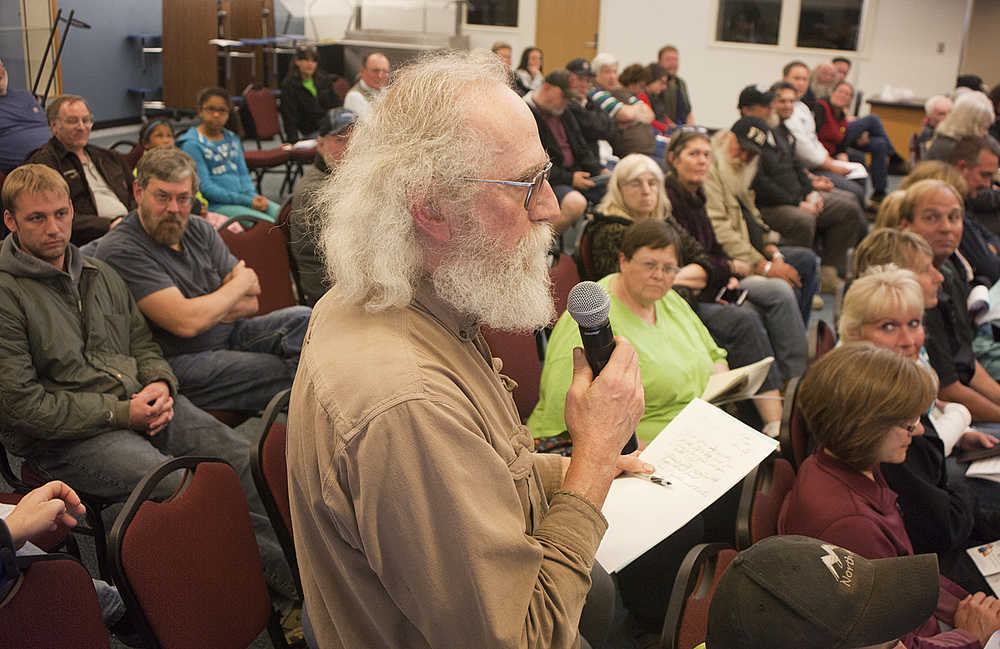It has been a decade since Nikiski voters rejected paying for a police service area. Now, after a rash of property thefts and what many have called a drug-fueled spike in crime, the question could again be on the October ballot.
More than 100 people packed into a conference room at the Nikiski Community Center to discuss an ordinance currently before the Kenai Peninsula Borough Assembly that would tax Nikiski residents to pay for local law enforcement. If the assembly passes the ordinance, the new service area would have to be approved by voters before it could become operational.
Public testimony went on for more than an hour as community members told stories of stolen and tortured pets, siphoned gas, caches of stolen property, intermittent automatic weapons fire and a general air of lawlessness. The general consensus was that it takes far too long for Alaska State Troopers to respond, if they respond at all and with deep cuts to the state’s budget, many said they did not believe the troopers were going to improve service in the area. Still, despite agreement that the community has a problem, the remedy to that problem were not as easily discerned.
Some considered a City of Nikiski, rather than adding another service area fee to an area that already pays for its fire service, community recreation center and road service with the same type of fee.
“I’d rather not see a proliferation of service areas,” said Karen McGahan. “If we have the same services we do now and incorporated a city, it might cost us less money and we wouldn’t have the borough assembly deciding things for us.”
The ordinance is currently on the assembly’s agenda for its June 16 meeting and public comment will also be taken at that meeting.
Others asked how a service area that includes hyper-rural communities outside of Nikiski would benefit those residents. The boundaries of the proposed service area are the same ones currently included in the fire service area. It includes communities on the west side of Cook Inlet accessible only by boat or plane like Tyonek. It also includes communities on the east side of the inlet, but still inaccessible from the road.
Mike Peek owns several parcels in remote Moose Point, a community about 20 miles from the end of the Kenai Spur Highway. Peek said he currently pays about $1,000 a year for things like fire service when it isn’t possible for fire equipment to reach his property.
“Why are we charging the people outside of the area that we can even reach?” he said.
His wife, Kristin Peek, agreed but said she would still vote for a law enforcement service area because though the Peeks have been recently burglarized, she said they knew what they were getting into when they bought remote properties.
“We’re here because we’re being victimized,” she said. “I would still vote for it because we need the police coverage.”
The proposed service area would pay for police protection through a 1.5 mill rate on each property’s assessed value.
It would generate about $2.2 million per year, according to estimates provided to the assembly by the Nikiski Community Council.
Resident Dean Bartsch said is sick of people being robbed and the community being victimized. He said wanted to see better, not just more police coverage in Nikiski.
“$150 on $100,000 ain’t much. We waste that much on Big Gulps and beer,” Bartsch said, with a grin.
Reach Rashah McChesney at rashah.mcchesney@peninsulaclarion.com.

